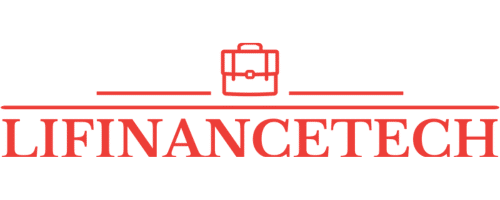
In today’s fast-paced business world, accuracy in invoicing is paramount for small businesses seeking to maintain a competitive edge. Errors in invoices can lead to delayed payments, strained client relationships, and even legal disputes.
This article explores best practices to ensure error-free invoicing, including organizing your invoicing system, setting clear payment terms, double-checking invoice details, utilizing automated invoicing software, streamlining the approval process, communicating effectively with clients, and conducting regular audits.
By implementing these strategies, small businesses can enhance efficiency and foster innovation in their invoicing processes.
Key Takeaways
- Invoice accuracy is crucial for small businesses to avoid delayed or incorrect payments and maintain financial health.
- Using centralized software for invoicing and offering multiple payment options can streamline the payment process and improve financial transparency.
- Setting clear payment terms helps establish mutual understanding, track expenses, simplify tax filing, and improve efficiency through automation.
- Double-checking invoice details and using automated invoicing software can reduce errors, save time, ensure consistency, and eliminate printing and mailing costs.
The Importance of Invoicing Accuracy
Consistently ensuring invoice accuracy is crucial for small businesses to maintain financial stability and client trust. Billing accuracy is a fundamental aspect of any business operation, as it directly impacts cash flow and profitability.
Errors in invoices can lead to delayed or incorrect payments, which can strain the financial health of a small business. To mitigate the risk of inaccuracies, small businesses can leverage invoice automation tools that streamline the invoicing process and reduce human errors. These tools enable invoice validation, ensuring that all necessary information is present and accurate before sending the invoice to the client.
Additionally, payment reconciliation plays a vital role in ensuring invoice accuracy. By regularly reconciling payments received with the invoices issued, small businesses can identify any discrepancies and take necessary actions to rectify them.
Accurate invoicing also contributes to accounting accuracy, enabling businesses to maintain up-to-date financial records and make informed business decisions based on accurate financial data.
Ultimately, prioritizing invoice accuracy demonstrates professionalism and builds trust with clients, enhancing the reputation of small businesses in the market.

Organizing Your Invoicing System
To effectively organize your invoicing system, small businesses can implement a systematic approach that ensures efficiency and accuracy throughout the entire invoicing process. An organized invoicing system not only improves the overall financial transparency of your business but also helps in reducing errors and delays in payment processing. Here are some best practices for organizing your invoicing system:
- Invoice Management: Use a centralized system or software to manage and track all your invoices. This allows you to easily access and retrieve invoices whenever needed, ensuring that nothing gets lost or overlooked.
- Payment Processing: Streamline your payment processing by offering multiple payment options to your clients, such as online payments, credit cards, or even automated recurring billing. This not only improves customer experience but also reduces the chances of errors in payment recording.
To convey a deeper meaning to the audience, here is a table showcasing the benefits of an organized invoicing system:
| Benefits of Organized Invoicing System |
|---|
| Enhanced financial transparency |
| Improved accuracy checks |
| Reduced errors and delays |
| Streamlined payment processing |
| Better customer experience |
Importance of bookkeeping and how it improves financial health- Read Now
Setting Clear Payment Terms
When setting clear payment terms in your invoicing system, it is important to establish a mutual understanding between your business and your clients. Clear payment terms ensure that there are no misunderstandings or delays in receiving payments, allowing your small business to maintain healthy cash flow and financial stability.
In addition, setting clear payment terms helps with expense tracking and small business finances, ensuring that you have accurate records of all incoming and outgoing payments.
To achieve payment accuracy and billing precision, it is crucial to clearly outline the payment due date, acceptable payment methods, and any penalties or late fees for delayed payments. This clarity not only helps your clients understand their obligations but also promotes transparency and trust in your business operations.
Moreover, clear payment terms contribute to tax compliance by providing a clear record of income and expenses. This helps simplify the tax filing process and reduces the risk of errors or audits.
Innovative invoicing systems also offer the possibility of automating payment reminders and recurring invoices, streamlining the payment process and reducing administrative burdens. This not only improves efficiency but also enhances the overall customer experience.
Double-Checking Invoice Details
An essential step in ensuring accurate and error-free invoicing is meticulously double-checking all invoice details. This process involves reviewing the invoice for any discrepancies or errors before sending it to the client. Double-checking invoice details is crucial for small businesses that strive for innovation and efficiency in their financial operations.
One way to double-check invoice details is through invoice verification. This involves comparing the invoice against the corresponding purchase order and delivery note to ensure that all the information aligns accurately. By verifying the invoice, businesses can identify any inconsistencies or discrepancies and make the necessary corrections before sending it to the client.
Another helpful tool for double-checking invoice details is invoice validation software. This software automatically validates invoice data against predefined rules and criteria, helping to detect any errors or inconsistencies. By using such tools, businesses can streamline their invoicing process and reduce the risk of errors.
Furthermore, double-checking invoice details is essential for maintaining accurate financial records. By meticulously reviewing each invoice, businesses can ensure that all transactions are accurately recorded, reducing the risk of financial discrepancies or audit issues.
Using Automated Invoicing Software
Automated invoicing software offers small businesses a reliable and efficient solution for streamlining their invoicing process. This innovative technology comes with a range of features and benefits that can revolutionize the way businesses handle their accounting tasks.
Here are four reasons why small businesses should consider using automated invoicing software:
- Time-saving: Automated invoicing software eliminates the need for manual data entry, allowing businesses to generate invoices quickly and accurately. This saves valuable time and reduces the risk of human errors.
- Improved accuracy: With automated invoicing software, businesses can ensure that all invoice details, including customer information, product descriptions, and pricing, are accurate and consistent. This helps to minimize billing disputes and maintain a professional image.
- Seamless integration: Many automated invoicing software solutions integrate with other accounting tools, such as financial management software and payment gateways. This allows for a seamless flow of data and simplifies the overall accounting process.
- Digital invoicing: Automated invoicing software enables businesses to send invoices digitally, eliminating the need for printing and mailing. This not only saves on paper and postage costs but also allows for faster delivery and easier tracking of invoices.
Streamlining the Approval Process
Streamlining the approval process is crucial for ensuring efficient and error-free invoicing in small businesses. In today’s fast-paced business environment, it is imperative to find innovative ways to optimize this process and eliminate bottlenecks that can delay payment collection and disrupt cash flow.
One way to streamline the approval process is by implementing an automated workflow system. This system allows invoices to be automatically routed to the appropriate approvers based on predefined rules and criteria. By eliminating manual handoffs and reducing the need for constant follow-ups, businesses can significantly reduce the time it takes to get invoices approved.
Another effective strategy is to establish clear and concise approval guidelines. Providing approvers with detailed instructions on what to look for and how to evaluate invoices can help minimize errors and inconsistencies. Additionally, setting up a centralized approval platform enables approvers to access and review invoices from anywhere, eliminating the need for physical paperwork and streamlining the overall process.
Furthermore, leveraging technology solutions such as optical character recognition (OCR) can automate data extraction from invoices, reducing the time and effort required for manual data entry. This not only speeds up the approval process but also reduces the risk of human errors.
Communicating With Clients About Invoicing
To ensure smooth and efficient invoicing processes, small businesses must effectively communicate with clients regarding their invoicing procedures. Clear and transparent communication not only helps avoid misunderstandings and delays but also strengthens the relationship between the business and its clients. Here are some best practices for communicating with clients about invoicing:
- Provide a clear breakdown: Clearly outline the products or services provided, their respective costs, any applicable taxes, and any other fees or charges. This helps clients understand what they are being invoiced for and reduces the chances of disputes.
- Set expectations: Communicate the payment terms, including the due date and any late payment penalties. This ensures that clients are aware of when and how they should make their payments.
- Offer multiple payment options: Provide clients with various payment methods, such as online payments, bank transfers, or credit card payments, to give them flexibility and convenience
- Send timely reminders: Send reminders to clients a few days before the payment is due to ensure they do not miss the deadline. This can be done through automated email notifications or text messages.
By implementing these practices, small businesses can foster better communication with their clients and improve their overall invoicing process.
Effective communication helps build trust, reduces errors, and ensures timely payments, ultimately contributing to the success of the business.
What is Financial Planning and what benefits it can bring to your business- Read Now
Regularly Auditing Your Invoicing Processes
Small businesses can ensure the accuracy of their invoicing processes by regularly conducting audits to identify any errors or discrepancies. Auditing your invoicing processes is a crucial step in maintaining the financial health of your business and ensuring that you are billing your clients accurately. By implementing a regular auditing schedule, you can proactively identify and rectify any issues before they become major problems.
Regular audits help to uncover any errors or discrepancies in your invoicing processes. This could include incorrect billing amounts, missing information, or any other mistakes that may occur during the invoicing process. By identifying these errors early on, businesses can prevent potential financial losses and maintain a positive relationship with their clients.
In addition to identifying errors, auditing your invoicing processes can also help you identify areas for improvement. By analyzing the results of your audits, you can identify any recurring issues or bottlenecks in your invoicing processes and implement changes to streamline and improve efficiency.
To conduct a successful audit, it is important to establish clear audit objectives and develop a checklist of key areas to review. This may include reviewing billing records, verifying payment information, and ensuring that invoices are being sent out in a timely manner. It is also important to involve relevant stakeholders, such as your finance team or external auditors, to ensure a thorough and unbiased audit.
Outsourcing Invoicing to Freelancers or Virtual Assistants
Outsourcing invoicing tasks to freelancers or virtual assistants (VAs) can be a strategic move for small businesses aiming to optimize their operations. According to a survey by Upwork, a leading freelancing platform, businesses that adopt remote work models and freelancers report a 22% increase in productivity. This approach allows businesses to leverage the expertise of skilled professionals without the need for full-time, in-house staff, contributing to overall efficiency.
Invoicing is a critical aspect of business operations, and outsourcing this function to freelancers or VAs can offer several advantages. These professionals often bring a wealth of experience in handling diverse invoicing requirements for various clients. For instance, a freelance accountant specializing in invoicing may have successfully managed invoicing tasks for multiple small businesses, showcasing a track record of accuracy and efficiency.
Outsourcing provides flexibility, allowing businesses to scale their invoicing efforts up or down based on their current needs. According to a study by Deloitte, businesses that embrace flexible staffing models, including freelancers, can respond more effectively to changing market demands. This flexibility is particularly beneficial for seasonal businesses or those experiencing fluctuating workloads.
Pros and Cons of Freelancers/VAs in Invoicing and Its Accuracy
Pros-
- Cost Efficiency: According to a report by McKinsey, hiring freelancers or VAs on a project basis eliminates the need for long-term commitments, reducing fixed labor costs by 20-30%. This cost-effective approach enables small businesses to allocate resources more efficiently.
- Expertise and Specialization: Many freelancers specialize in invoicing and related tasks. According to a survey by Freelancer.com, 80% of freelancers on their platform have expertise in specific domains, ensuring a high level of accuracy and efficiency in invoicing processes.
- Flexibility: Outsourcing provides businesses with the flexibility to scale invoicing efforts based on workload. According to a survey by PwC, businesses that embrace flexible staffing models experience a 30% increase in workforce agility, ensuring optimal resource allocation during peak times.
Cons-
- Communication Challenges: Remote collaboration with freelancers or VAs may pose communication challenges, potentially leading to misunderstandings or delays in the invoicing process. Mitigating this challenge requires establishing clear communication channels, as highlighted in a report by Harvard Business Review.
- Security Concerns: Sharing sensitive financial information with external freelancers or VAs may raise security concerns. Small businesses must implement robust data protection measures. According to a survey by Norton, 68% of consumers are concerned about the security of their financial information when shared with external entities.
Steps to Improve Invoicing Efficiency Using Freelancers/VAs
- Detailed Onboarding and Training: Provide comprehensive onboarding and training materials to freelancers or VAs. According to a study by the International Journal of Training and Development, effective onboarding improves task performance by 11% and reduces errors.
- Clear Communication Protocols: Establish clear communication channels and protocols to facilitate effective collaboration. Regular check-ins, updates, and feedback sessions can help address any issues promptly. According to a report by Project Management Institute, effective communication improves project success rates by 40%.
- Utilize Invoicing Software: Implement invoicing software that allows freelancers or VAs to work within a standardized system. This not only ensures consistency but also facilitates easy tracking and monitoring of invoicing activities. According to a study by ACCSA Global in 2016, 46% of small businesses use invoicing software to streamline financial processes.
- Set Performance Metrics and Expectations: Define clear performance metrics and expectations for freelancers or VAs. This may include accuracy rates, turnaround times, and adherence to established processes. According to a survey by Gallup, setting clear expectations improves employee performance by 13%.
- Regular Quality Checks: Conduct regular quality checks on the work of freelancers or VAs to identify and rectify any inaccuracies or discrepancies. This proactive approach helps maintain high standards in invoicing processes. According to a report by the American Society for Quality, regular quality checks lead to a 40% reduction in defects.
Conclusion
In conclusion, the importance of precision in small business invoicing cannot be overstated. From optimizing processes to leveraging automation, the strategies outlined here lay the groundwork for operational excellence. The introduction of outsourcing to freelancers or virtual assistants stands out as a game-changing maneuver, offering cost efficiency and specialized expertise. While challenges like communication and security must be managed, the potential benefits make it a compelling option.
In essence, consider this guide a navigational tool for small businesses—a roadmap to navigate invoicing intricacies with precision, innovation, and the strategic advantage of outsourcing.








